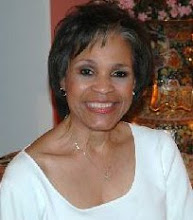
At 3 o’clock on Memorial Day, in collective consciousness, we remembered, honored, thanked, and mourned those who are no longer physically here with us. Among those with the most heartbreaking memories were the 1,600 children who’ve lost a parent in Afghanistan or Iraq.
Nearly 150 of those children gathered this weekend at a grief camp to share their stories and to relieve some of their pain. They drew pictures, wrote stories, talked, and cried, letting go of their anxieties, their anger, their fears, but not their memories. Who can imagine a child's struggle to understand death, when she barely understands life?
Children’s imaginations are so powerful, so vivid, and so transformative. I suspect that their imaginations, as well as our imaginations, also have the power to heal, which explains why therapists encourage us to be creative when we’re working through painful issues such as loss.
What if we could use our imaginations for a moment? Ever seen a photo of the solar system? Envision it now, and choose a planet to visit. Pretend that this planet has an observatory where we can watch all of the action on Earth.
Think of it. It would be as if we were sitting in the audience, watching a bazillion personal dramas performed 24-7.
Look! Some of the theaters over there are decadently opulent; and their players perform in elaborate costumes, surrounded by luxurious props. Others don’t even have rooftops. Players are dressed in rags and recite their lines on stages with dirt floors. Some are deliriously happy. Others are miserable. Some have magnificent physical bodies; others have been ill from the day they arrived on the planet.
Why? Why not, if it’s just theater, if it's not real? And, just for a moment, let’s just suppose that’s exactly what the Earth experience is: Theater. It certainly has all of the necessary theatrical elements: There’s this constant stream of souls in human body costumes carried onto stages in little blankets. Some time later, each one is carried off in a rectangular box. Not one of the actors stays on the stage forever. Never have. Never will.
And what characters they play! Some of the roles last a short while; others stay onstage much longer. Have you noticed that most of the actors become so engrossed in their personal dramas that they actually think the theater is Life itself—the Alpha and Omega? It makes sense that whenever someone exits the stage, they think that character has ceased to exist.
But have they?
What if Earth is not Home, but simply a place to act out an infinite number of melodramas, murder mysteries, sci-fi adventures, tragedies and love stories—then move on?
What if the building you’re sitting in is merely an elaborate prop in a gigantic theater created by you and billions of other souls as a place to grow, learn, love, and play?
What if your body is merely a costume that you are wearing; and the real you is on the inside, looking out?
What if the people who play major roles in your life agreed, a very long time ago, to share the Earth stage with you at strategic times to add some tension, comic relief, love, even denouement to your drama?
What I’m suggesting is the possibility that your physical life is just a fraction of your total existence; and that your personality is just a role, a character you’re playing right now. I know these possibilities might be difficult to grasp. In fact, you might find them downright goofy. That’s OK. We’re simply using our imaginations to go somewhere we’ve never been, remember?
Think about the times you watched a stage play or a television show and became caught up in the drama as it unfolded. You probably screamed when you were frightened, cried when one of the characters died, and cheered when good won over evil or when the star-crossed lovers finally united. You had honest emotional reactions, even though you knew it was theater. You can only imagine how emotionally involved you’d become, if you weren’t aware it was theater.
Sitting on another planet, with a broader perspective of the Universe, could make you wonder if life on Earth is actually an opportunity to learn something—and every person in your life is there to teach you. Sometimes we’re too close to a situation, too caught up in the drama to see the lesson in it. From the audience, however, it’s clear as day.
Do we dare step outside of our personal dramas to view the stress in our lives, the pain we cause ourselves and others, the despair and feelings of victimization from a different perspective? Can we use our creative power, our imaginations, to open ourselves to receive answers to age-old questions: Why does life seem so unfair? Why am I here? Why did my loved one die? Is there a God? Why did this horrible thing happen?
Maybe you’ve asked these questions. I certainly have. What I’ve noticed is that the answers were revealed to me, in proportion to my willingness to receive and understand them. As they say, when the student is ready, the teacher will appear.
Who are the souls that have agreed to come onto your stage to teach you about love, about Life, about appreciation, about pain, about integrity, opportunity and failure? Who demonstrated powerful lessons that sent you scurrying to find the strength, the God within you? Who helped you to know yourself?
You asked them to teach you. Imagine that. Did you learn the lesson, or will you have to call in another teacher? While you're at it, think about what your performance has taught others?
What if everything that happens in your experience here is part of a plan to move you closer to the Divine? Would you see everything and everyone differently? Would you judge experiences and people as good or bad—or merely part of the journey?
Eventually, children who have experienced the death of a loved one will learn that light and darkness cannot occupy the same space. Maybe they'll even learn to ask: If Life is eternal, what is death, really?
Stepping out of the drama, sitting the audience, you might discover that Life is always fair; God is never far; Death is not The End; and absolutely nothing is unforgivable.
Perhaps that is why the Bible suggests that we “Remember to count it all joy!”


